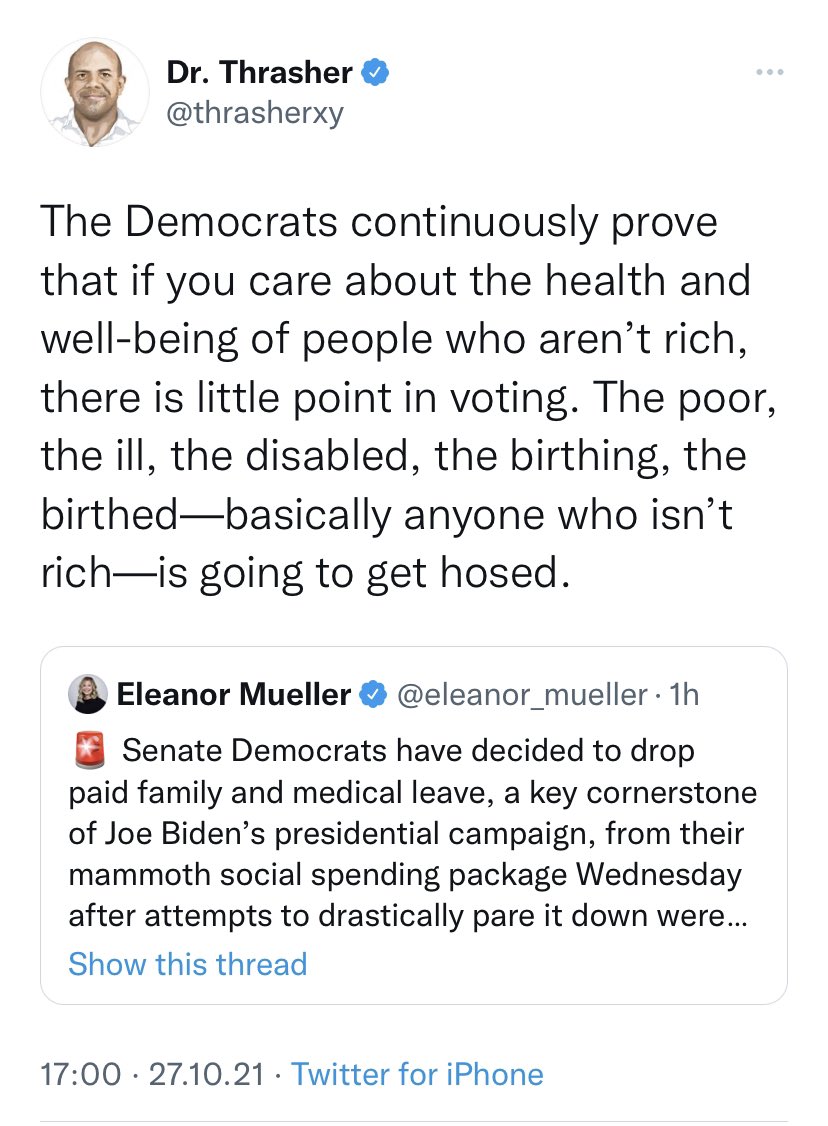
Another massive advantage the Right has, in addition to the one @drvolts emphasizes, is the fact that it’s a much more homogeneous coalition, almost all white and conservative, easier to unify behind a single project of preserving “real” (read: White Christian-dominated) America.
https://twitter.com/drvolts/status/1454181872670371841
By contrast, if what we mean by “the Left” here is roughly the Democratic coalition, then that’s a much more diverse beast - ideologically, racially / ethnically, in terms of cultural sensibilities. Much harder to get everyone on the same page on anything, harder to mobilize.
Crucially, the Right also has cultivated an image of “the Left” as this radically Un-American threat for decades, can built on decades of demonization of “the Left” as a fundamentally illegitimate force that is out to destroy “real” America. No equivalent to that among Democrats.
So, yes, this specific anti-“CRT” moral panic is conjured out of thin air - as Christopher Rufo, the guy who is chiefly responsible for conjuring it, has been proudly telling us himself! But it builds on a long list of rightwing crusades that came before it, going back decades.
Whatever the moral panic du jour - “pc”? Cancel culture? Wokeness? - and whatever the latest “The Libs are using public education to brainwash our kids!” crusade: The specifics matter less than what the Right accepts as the Higher Truth - “They” want yo destroy “real” America.
Once that rubric is established - and it has been established for decades! - it gets a lot easier to rile up your side by plugging something in that you know will resonate with your relatively homogenous base’s ideological commitments and cultural sensibilities.
• • •
Missing some Tweet in this thread? You can try to
force a refresh




